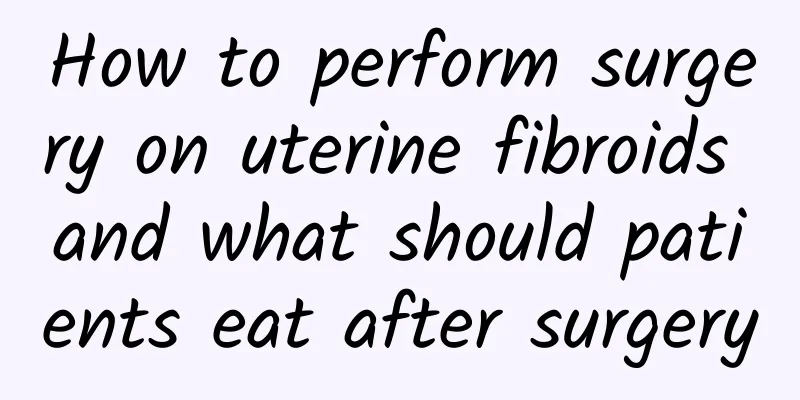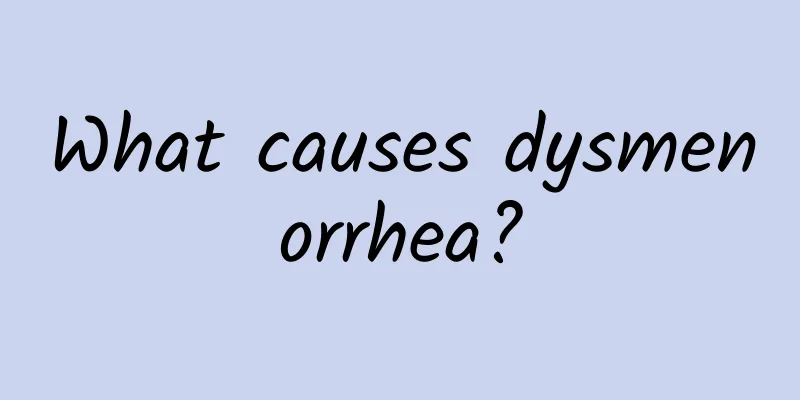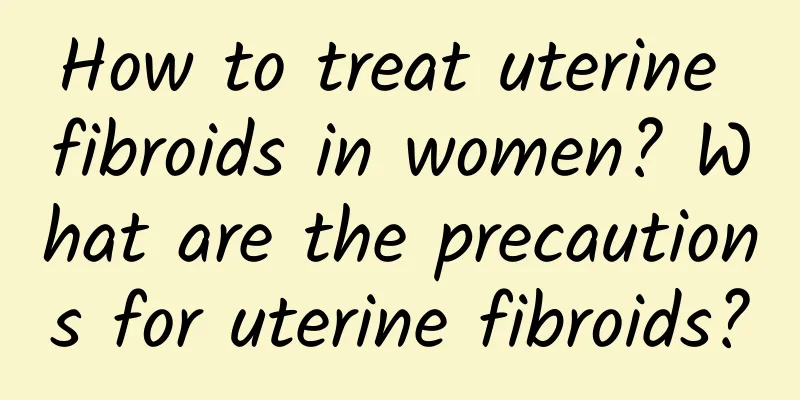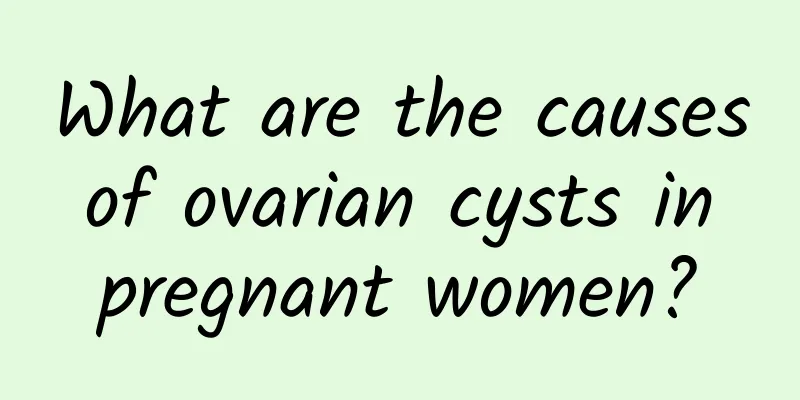How to perform surgery on uterine fibroids and what should patients eat after surgery

|
Most women are prone to gynecological diseases after giving birth. They can use mild medications, but serious ones may require surgery. Do you know the treatment of uterine fibroids? Do you know what to eat after uterine fibroid surgery? Causes of uterine fibroids 1. Age: Benign tumors mostly occur in women of childbearing age, malignant tumors mostly occur in elderly women, and a few special types of tumors mostly occur in adolescent and teenage women. 2. Fertility: Fertility factors such as premature birth, frequent birth, and multiple births. 3. Sexual hygiene: Unclean sexual life causes reproductive organ infections such as vaginitis, cervicitis, and cervical erosion. 4. Taking beauty and health products: Many women intentionally or unconsciously increase the estrogen level in their bodies without the guidance of a doctor. 5. Unhealthy lifestyle: smoking, especially heavy smoking, long-term drinking and high-fat food. Treatment of uterine fibroids Surgery For patients with myoma, the age for hysterectomy was set at over 45 years old in the past. Now it seems that, based on reality, especially according to the progress of gynecological endocrinology, the age for ovarian retention is generally 50 years old (the average age of menopause is 49.5 years old), that is, those who are under 50 years old and can retain their ovaries should retain them. Or normal ovaries that have not reached menopause after the age of 50 should also be retained, rather than age markers. Because the ovaries still have certain endocrine functions after normal menopause, they must work for 5 to 10 years. Retaining the ovaries helps stabilize the autonomic nerves, regulate metabolism, and facilitate the transition to the elderly. The uterus also has its endocrine function and is the target organ of the ovaries, so it should not be removed at will. Usually, the age for hysterectomy is over 45 years old, and those under 45 years old, especially those under 40 years old, are suitable for myomectomy. For those who retain the attachments, if both sides can be retained, it is best to retain both, rather than one side. The incidence of ovarian cancer is 0. Not higher than 15% of those who do not have their uterus removed. Drug treatment The basis of drug treatment is that uterine fibroids are a sex hormone-dependent tumor, so antagonist hormone drugs are used for treatment. Recently used drugs temporarily suppress the ovaries. Danazol and cottonpol are commonly used drugs in China. Other androgens, progesterone and vitamin drugs are also used. Since 1983, a study reported that the application of gonadotropin-releasing hormone (GnRHa) successfully reduced uterine leiomyoma. Studies have shown that GnRHa indirectly reduces the secretion of gonadotropin at the pituitary level and effectively inhibits ovarian function, which is the so-called "downregulation" phenomenon. How many surgeries are needed for uterine fibroids? Uterine fibroids require surgery, but generally speaking, uterine fibroids over 5 cm indicate a serious condition and require surgical removal. If the uterine fibroids are less than 5 cm, drug treatment is used to control the growth of the fibroids. Asymptomatic uterine fibroids do not require treatment. A single fibroid can be removed surgically. If uterine fibroids are multiple and the patient has no fertility requirements, it is recommended to remove the uterus to prevent the fibroids from growing again. The treatment of uterine fibroids should be determined based on individual age, clinical manifestations, and endocrine conditions. It is recommended to go to a professional hospital for examination and clarify the treatment plan under the guidance of a doctor. What to eat after uterine fibroid surgery? Easily digestible food After the operation, you can gradually resume your diet and start eating liquid or semi-liquid food, such as rice soup, porridge, etc., or some easily digestible food, such as noodles, lotus powder, etc., and gradually transition to normal food. 2. Blood-enriching foods If you are anemic after surgery, you should supplement your blood appropriately. You can eat some foods high in iron, such as pork liver, black sesame, grapes, seaweed, wolfberry, mushrooms, etc. Crude fiber foods For patients who are bedridden after surgery, eating crude fiber foods can promote gastrointestinal activity and keep bowel movements smooth. |
<<: How big is the uterine fibroid before surgery is needed? Treatment methods for uterine fibroids
Recommend
Can I take birth control pills if I have dysmenorrhea and cold uterus?
It is usually not recommended to take contracepti...
How severe is adenomyosis dysmenorrhea?
Dysmenorrhea can be said to be the most common gy...
Dongshi instant beverages: unclear labels on calories and volume
In the hot summer, fast food operators have launc...
What is cervical hypertrophy? What are the symptoms?
You may not hear about cervical hypertrophy very ...
How to check for pelvic inflammatory disease
Pelvic inflammatory disease is one of the more co...
What are the specific symptoms of ectopic pregnancy?
Among women's gynecological diseases, ectopic...
Are hormones the cause of ovarian cysts?
Although the ovaries are small in size, they are ...
How to calculate the menstrual cycle and what kind of menstrual cycle is normal
How to calculate menstrual cycle? What kind of me...
Women should be alert to these five abnormal leucorrhea signals
Yellow watery vaginal discharge is yellow or yell...
What causes ovarian cysts?
Ovarian cysts are fluid retention in a woman'...
Integrate Chinese and Western medicine to prevent obesity! Tailor-made effective management
It is common to see some celebrities publicly sha...
How to recover from bacterial vaginosis as soon as possible? Let's see what the doctor says
To recover from bacterial vaginosis as soon as po...
Treatment of left ovarian cyst
The treatment of left ovarian cysts varies depend...
What causes premature ovarian failure?
What causes premature ovarian failure? Premature ...
I walk 10,000 steps a day, but my belly still doesn’t go away? Squat + high-intensity aerobic exercise to get rid of lower body fat
We often hear the saying: "Walk 10,000 steps...









